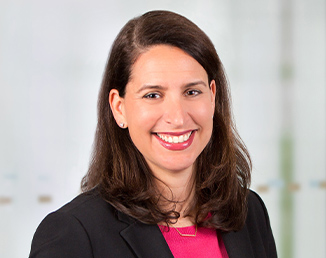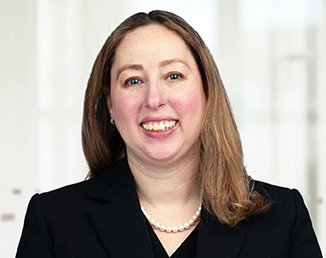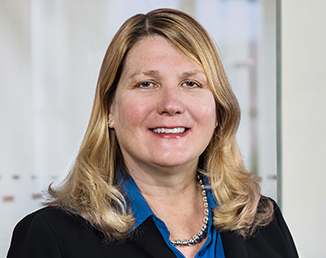New Jersey Employees' Children Not Going Back to In-Person School - Now What?
The changing legal landscape and uncertainty that emerged in March with the onset of the COVID-19 pandemic will likely continue well into the Fall. Indeed, employers continue to struggle in determining their employees' entitlement to time off for COVID-19-related reasons, especially given the varying status of in-person and remote learning across New Jersey school districts. Below is a summary of New Jersey employers' obligation to provide leave and/or paid time off to their employees whose children are not attending in-person classes on a full-time basis due to the COVID-19 pandemic.
Families First Coronavirus Response Act
The federal Families First Coronavirus Response Act (FFCRA), which applies to employers with under 500 employees, provides job-protected paid leave to all except certain health care employees through December 31.
Employees are eligible for two forms of leave under the FFCRA. The first, known as emergency paid sick leave (EPSL), provides up to 80 hours of paid leave to employees (regardless of their length of service) for any one of six reasons, including to care for a child whose place of care is closed or normal childcare provider is unavailable due to COVID-19.
The second, an expansion to the federal Family and Medical Leave Act (FMLA), provides up to 10 weeks of paid leave to eligible employees who have worked for their employer for at least 30 days before leave, to care for a child whose school has been closed or childcare provider is unavailable due to COVID-19, if they have not otherwise used their FMLA leave in the applicable 12-month period.
Combining the two types of leave available under the FFCRA, eligible employees are entitled to up to 12 weeks of job-protected leave, paid at a rate of two-thirds of their normal pay up to a maximum of $200 per day, which may be recouped by their employer through tax credits. Employees who have already exhausted their 12-week FMLA leave entitlement in the 12-month period would still be entitled to two weeks of EPSL.
With regard to tax credits, it is important to note that although employees are entitled to paid leave under the FFCRA for care of children under 18 (or over 18 with a physical or mental disability who are unable to care for themselves) when school has been closed or a childcare provider is unavailable due to COVID-19, Internal Revenue Service guidance states that employees who wish to take leave to care for children over the age of 14 in such circumstances must provide a statement indicating that "special circumstances" require them to provide care during daylight hours, in order for the employer to be entitled to a tax credit for their leave. Unfortunately, there is no guidance setting forth what "special circumstances" would warrant approval of a tax credit.
New Jersey Earned Sick Leave Law and New Jersey Family Leave Act
Whether or not covered by the FFCRA, New Jersey employers also have obligations under the New Jersey Earned Sick Leave Law (NJESLL) and the New Jersey Family Leave Act (NJFLA). Both the NJESLL and the NJFLA were amended on March 25 to provide eligible employees with job-protected leave relating to a declaration of a state of emergency by the Governor or an order or recommendation by a health care provider or the Commissioner of Health, including when they must care for a child whose school or place of care is closed.
The NJESLL, which applies to all employers in New Jersey, provides up to 40 hours of earned sick leave to employees for various reasons, including to care for a child whose school or place of care is closed due to an epidemic or a public health emergency (among other reasons), paid at employees' regular rate of pay. Employers that have chosen to combine all available paid time off into one policy must provide all the paid time off available to employees under such combined policy as job-protected leave for covered reasons. Employees, however, may not be forced to use available earned sick leave under the NJESLL, even if taking time off for a covered reason.
The NJFLA, which applies to employers with 30 or more employees, provides employees with at least one year of service and 1,000 hours worked in the last 12 months to take up to 12 weeks of unpaid job-protected leave in any 24-month period for certain reasons, including to care for a child whose school or place of care is closed due to an epidemic or a public health emergency. New Jersey Family Leave Insurance (NJFLI), a benefit available from the State of New Jersey during other forms of NJFLA leave, is not available to employees taking leave for this purpose. However, employees who are not eligible for any other paid leave benefit, including earned sick leave, may qualify for unemployment benefits during their NJFLA leave.
The Interplay of Federal and State Laws
Leave Runs Concurrently – Where an employer is subject to both the FFCRA and the NJFLA, employees' leave may run concurrently under both laws where the leave is taken for the same covered purpose (in this case, the unavailability of child care due to COVID-19). Employers should inform employees of this and should designate the leave as covered by both laws, in writing. Employers may allow employees taking EPSL to supplement such partial paid benefit with any employer-provided paid time off (including but not limited to earned sick leave) to achieve full pay during leave, but tax credits are not available for such supplementation. For the remaining 10 weeks of expanded FMLA leave, employees may choose, or employers may require, the use of any employer-provided paid time off other than earned sick leave, the use of which is always at employees' option.
Availability of Intermittent Leave – Given that children will likely be neither fully in school nor fully home during the entire Fall semester, and may attend in-person classes on half days or during certain days of certain weeks, it is likely employees will need to seek intermittent leave from work. Leave on an intermittent basis is available under federal and state laws. Under the FFCRA, it is not entirely clear whether employees must have their employer's agreement to take intermittent leave when their child's school is effectively closed (including periods of remote learning). Indeed, while some U.S. Department of Labor (USDOL) guidance requires employer agreement for intermittent leave, other USDOL guidance states that employees are entitled to leave even when remote learning alternates days and times. Under the NJFLA, intermittent leave is permissible, as long as employees provide advance notice and attempt to schedule their leave in a manner designed not to disrupt normal business operations. Employees should also provide the employer with a regular schedule including hours of the day or days of the week for which intermittent leave will be used. Earned sick leave pursuant to the NJESLL can be taken as needed by employees and is subject to the increments set forth in an employer's policy. Employees must provide seven days' notice for the foreseeable use of such time.
Unanswered Questions – Due to the speed of the COVID-19-related developments over the last several months, lawmakers did not address every possible scenario, and unanswered questions continue to exist. The USDOL has made its position clear on several issues, including that: 1) when some (or all) classroom instruction is provided online, school is "closed" for purposes of the FFCRA, and employees are entitled to leave under the FFCRA if no other suitable person is available to care for the child during such time; 2) employees are not entitled to leave under the FFCRA when in-person instruction is available, but they choose to keep their children out of school in an effort to prevent them from contracting COVID-19; and 3) employees are entitled to leave under the FFCRA if their individual childcare worker (as opposed to a "place") is unavailable due to COVID-19. While there is no guidance at this time as to whether leave under the NJFLA or NJESLL would be available in such circumstances, New Jersey may follow the federal interpretation. In any event, if a child suffers from a serious medical condition that would make him/her more susceptible to contracting COVID-19 and/or more adversely impacted by contraction of COVID-19, job-protected leave under federal and/or state law(s) would likely be available.
New Jersey Executive Order 107
Lastly, employers should be aware of Executive Order 107, which was issued by Governor Phil Murphy on March 21 and remains in effect. That Executive Order specifically states that "[a]ll businesses … must accommodate their workforce, wherever practicable, for telework or work-from-home arrangements." Penalties for violations of this Executive Order include imprisonment for a term not to exceed six months and/or a fine not to exceed $1,000. Given this Executive Order, New Jersey employees who do not wish to take leave, or who are not entitled to take leave, may nonetheless be able to work from home while their children are not attending in-person school or care. Such employees, however, must be effectively able to do so and to meet their normal performance expectations.
Conclusion
No one knows when children will be able to resume in-person attendance at school or other childcare facilities on a full-time basis. As stated above, although employees' entitlements to leave under the FFCRA because of the unavailability of their children's place of care or childcare provider are set to expire on December 31, leave entitlements under New Jersey law may still be available and/or may reset thereafter.
Employers with specific questions regarding their employees' entitlement to leave should seek assistance from legal counsel to ensure they are complying with applicable law.
For more Day Pitney alerts and articles related to the impact of COVID-19, as well as information from other reliable sources, please visit our COVID-19 Resource Center.
COVID-19 DISCLAIMER: As you are aware, as a result of the COVID-19 pandemic, things are changing quickly and the effect, enforceability and interpretation of laws may be affected by future events. The material set forth in this document is not an unequivocal statement of law, but instead represents our best interpretation of where things stand as of the date of first publication. We have not attempted to address the potential impacts of all local, state and federal orders that may have been issued in response to the COVID-19 pandemic.





